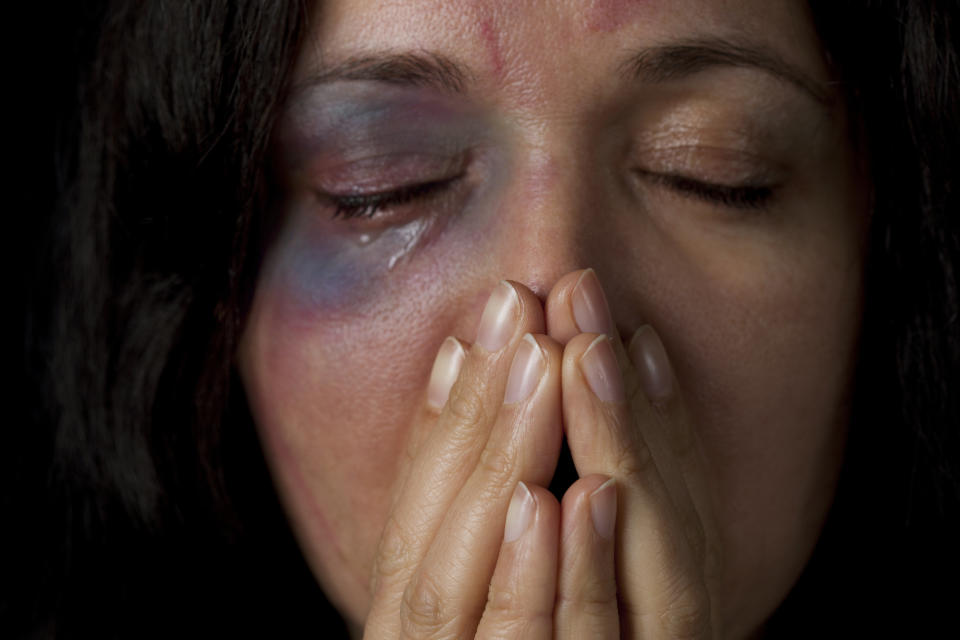The Harvey Weinstein Tape Is A Masterclass On Emotional Abuse

In a span of one minute and 54 seconds, model Ambra Battilana Gutierrez explicitly said the word “no” five times to Harvey Weinstein’s sexual advances. She told him repeatedly that she was uncomfortable and that she wanted to leave.
But she also said she was “sorry.”
This conversation between the two of them, captured during an FBI sting and published in Ronan Farrow’s New Yorker report on Tuesday, is a textbook example of psychological and emotional abuse, and shows that predatory behavior is truly insidious and rarely solely physical.
During the recorded conversation, Weinstein repeatedly tried to guilt Gutierrez into coming in to his hotel room for a drink while he took a shower, even though she voiced her discomfort. His tone was angry and desperate as he told her that she was embarrassing him, that she was making a scene in a hotel where he frequently stays.
His pained voice reassured her that he was not going to “do anything,” that he was sorry for groping her breast the day prior, that he was just “used to” being able to do that to women. He repeatedly issued unfinished threats, ominously trailing off after saying, “If you embarrass me in this hotel...”
This kind of rhetoric ― the kind that makes the victim look like they’re in the wrong when the opposite is actually true ― is common in abusive relationships, particularly in intimate partner relationships.
Domestic violence prevention and awareness resources show that emotional or psychological abuse can often predicate physical or sexual violence and therefore serve as a warning sign of what’s to come ― and though Weinstein and Gutierrez were not in a romantic relationship, the incident is still indicative of how control, manipulation and abuse can manifest.
Ruth Glenn, the executive director at the National Coalition Against Domestic Violence, told HuffPost that the way Weinstein spoke to Gutierrez was “textbook” abuse.
“The cajoling and the shaming ... what he was conveying was, ‘I can destroy you and I have the power to do with you what I will.’”
Glenn also told HuffPost that emotional abuse is often the most difficult thing to recover from after an instance of violence.
“The first things that victims and survivors will say is the hardest thing to get over is the psychological and emotional abuse,” she said. “It is permanent. And it really reaches in to your psyche.”
Weinstein’s conversation with Gutierrez is also known as “gaslighting,” a term that’s picked up traction in recent years, especially in the wake of the 2016 election. Gaslighting is an abusive tactic in which the abuser makes their victim question their memory, perception, and overall sanity. HuffPost’s Melissa Jeltsen used the term last year to describe then-presidential candidate Donald Trump. “The GOP front-runner is gaslighting us — a technique that involves lying, then feigning outrage when caught,” she wrote.
Weinstein’s repeated pleading for Gutierrez not to “embarrass” him or “cause a scene” shows how gaslighting can make an abuse victim feel like they are the one that’s made a situation hostile rather than the actual abuser. It’s no surprise, then, that in their conversation, Gutierrez finds herself apologizing to the man making her feel unsafe.
As the allegations against Weinstein ― which now include three separate accounts of rape and myriad other instances of harassment and assault ― pile up, it’s important to recognize that emotional abuse can be just as traumatizing as other forms, and that its victims are just as deserving of validation and support.
Need help? Visit RAINN’s National Sexual Assault Online Hotline or the National Sexual Violence Resource Center’s website.
Also on HuffPost









Love HuffPost? Become a founding member of HuffPost Plus today.
This article originally appeared on HuffPost.

